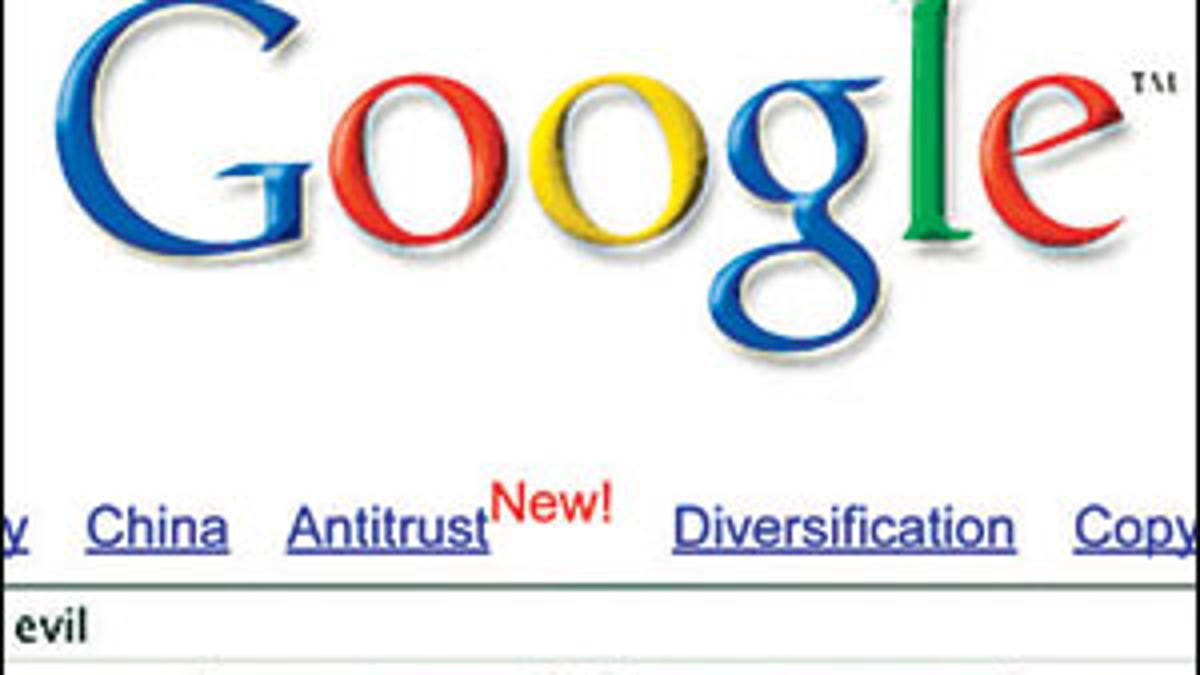Avoiding the very appearance of evil at Google
Google has a tremendous amount of power, and it grows daily. Here's what the company should do to guard against its best (and worst) intentions.

The Economist has an amazingly good article this week on Google, and its growing influence and power. Rather than ring alarm bells about Google's sometimes casual approach to privacy concerns, the article suggests that Google...
...needs a deeper change of heart. Pretending that, just because your founders are nice young men and you give away lots of services, society has no right to question your motives no longer seems sensible. Google is a capitalist tool--and a useful one. Better, surely, to face the coming storm on that foundation, than on a trite slogan that could be your undoing.
Amen. Open source provides such transparency, and it's one reason that open source is spreading like wildfire. But Google doesn't play by these same rules (nor do its competitors), which makes it all the more critical that the company embrace "Transparency at all costs" rather than "Do no evil" as its mantra. The former ensures the latter, as Wikipedia is finding.
For, as the article continues,
...[C]onflicts of interest will become inevitable--especially with privacy. Google in effect controls a dial that, as it sells ever more services to you, could move in two directions. Set to one side, Google could voluntarily destroy very quickly any user data that it collects. That would assure privacy, but it would limit Google's profits from selling to advertisers information about what you are doing, and make those services less useful. If the dial is set to the other side and Google hangs on to the information, the services will be more useful, but some dreadful intrusions into privacy could occur.
"But not with Google!" we cry in dismay. Maybe. Maybe not. Google, despite its protestations to the contrary, is just a corporation, with the same requirement: please shareholders by making money. Without checks and balances, it will invariably shift that 'dial' in the wrong direction in ways that may profit it...but hurt its customers. Not because Google is evil. But because its employees are human.
We need to be careful whenever we imbue a sense of holiness in any person (or collective of people). People are fallible. Corporations are even more so. I have no doubt that had you talked with Microsoft employees at the height of the antitrust investigations, they would have moralistically intoned the Windows catechism and shouted out at the unfairness of it all.
And yet the company was wrong, and its employees complicit in that wrong. Google is no different. No company is any different.
This is why we protect our customers and ourselves against temptations to do wrong. This is why I'm such an ardent believer in open source. As I've written, open source is one way to help mitigate pressures to cheat on one's quarter by lying to customers. It is a way to protect a vendor's best intentions.
In Google's case, it needs a strong "open data" policy. If the online world is shifting to data lock-in as its proprietary hook, as Tim O'Reilly suggests, then protecting that data from ill-conceived use is critically important. The article notes that Google uses...
"Don't be evil" as its corporate motto and...explicitly intones that its goal is "not to make money" [but rather]... "to change the world"....[But] Google--contrary to its own propaganda--is much better judged as being just like any other "evil" money-grabbing company.
This is not cause for alarm, but rather for celebration, of sorts. Google will do far more good for its shareholders and for the world as it strives to make money. It will do far more good for its users if it hedges against this natural inclination with transparency that protects them, and itself, from its own best (and worst) instincts.
Google is not evil. It just has a lot of power. Any power--and especially the kind that Google increasingly possesses--should be circumscribed by checks and balances. Transparency is the key to Google's future: transparency in the code it uses, and transparency in the way it manages our data. Provided it does this, who is to blame Google for making a heck of a lot of money in the process?
Certainly not I.
Via the O'Reilly Radar.